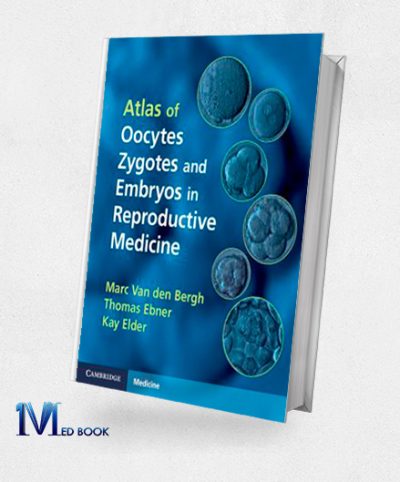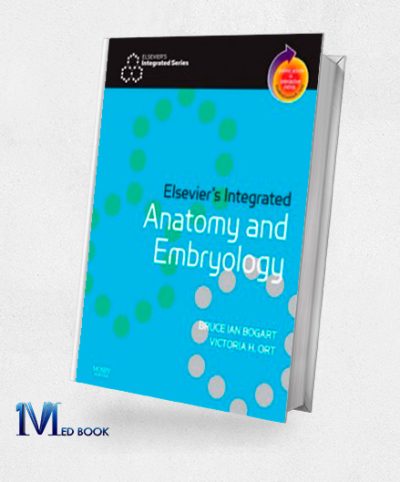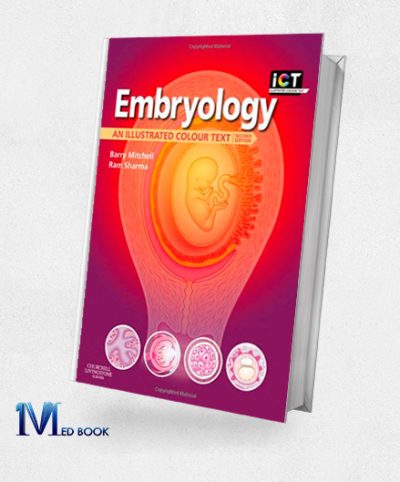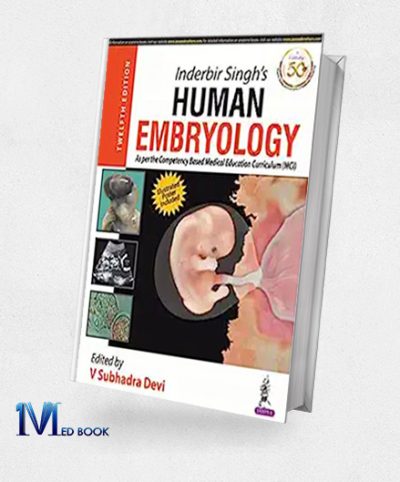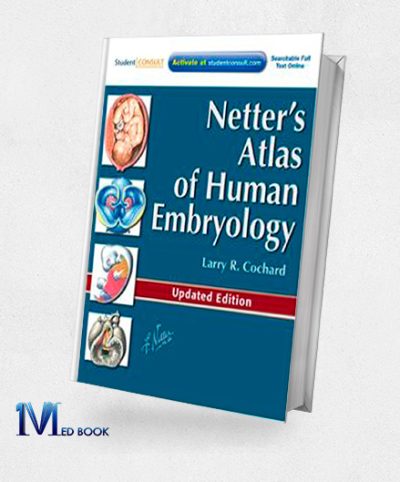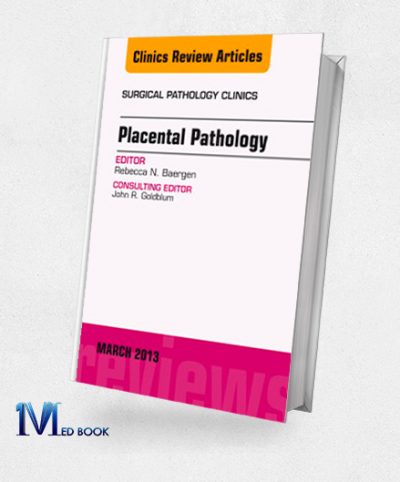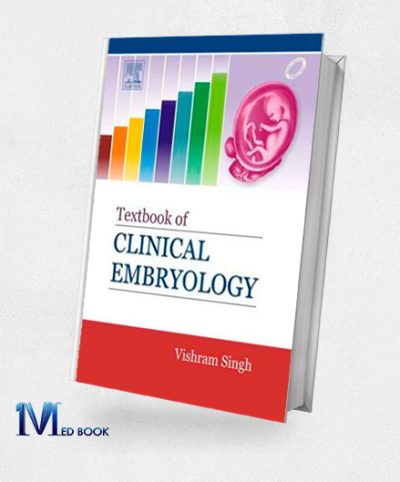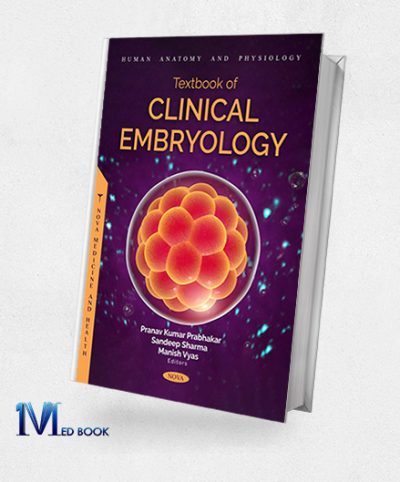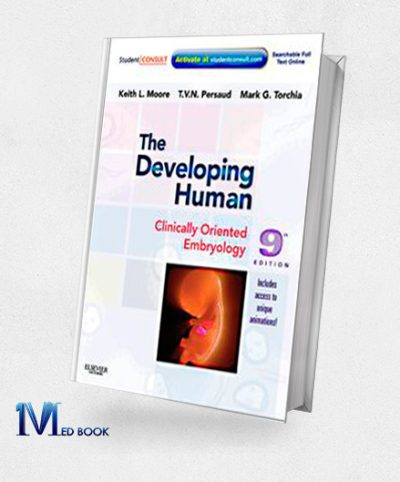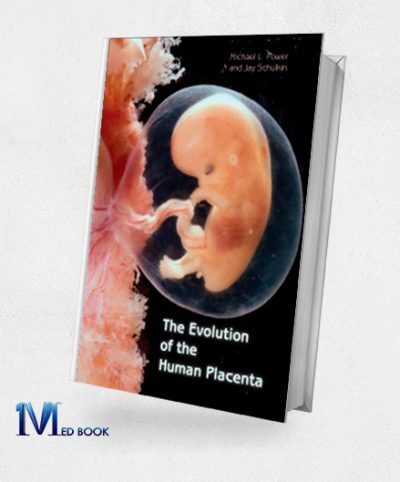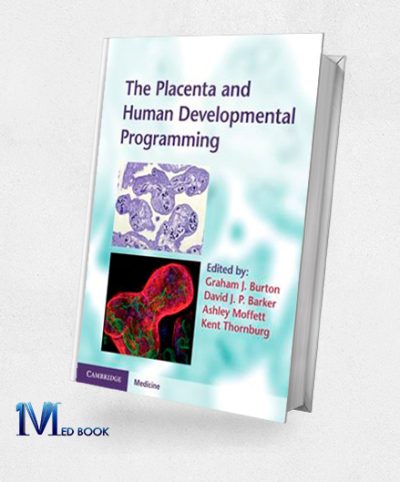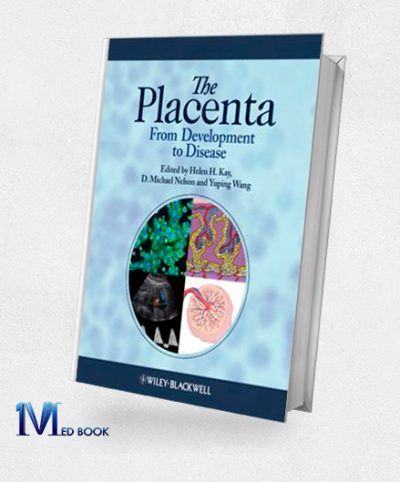Embryology
Before We Are Born Essentials of Embryology and Birth Defects 8th Edition (Original PDF from Publisher)
Original price was: $55.75.$23.00Current price is: $23.00.BRS Embryology 6e (Lippincott Board Review)
Original price was: $46.50.$22.10Current price is: $22.10.Elseviers Integrated Anatomy and Embryology (Original PDF from Publisher)
Original price was: $40.80.$22.10Current price is: $22.10.Embryology An Illustrated Colour Text 2nd Edition (Original PDF from Publisher)
Original price was: $39.54.$22.10Current price is: $22.10.Essentials of Oral Histology and Embryology A Clinical Approach 4th Edition (Original PDF from Publisher)
Original price was: $72.62.$24.00Current price is: $24.00.Inderbir Singh S Human Embryology, 12th Edition (Original PDF From Publisher)
Original price was: $67.01.$27.00Current price is: $27.00.Netters Atlas of Human Embryology Updated Edition 1st (Netter Basic Science)
Original price was: $54.00.$21.00Current price is: $21.00.Placental Pathology An Issue of Surgical Pathology Clinics 1st Edition (The Clinics Surgery)
Original price was: $89.48.$24.90Current price is: $24.90.Smith’s Recognizable Patterns Of Human Deformation, 5th Edition (EPub+Converted PDF)
Original price was: $99.99.$40.00Current price is: $40.00.Smith’s Recognizable Patterns Of Human Deformation, 5th Edition (True PDF)
Original price was: $119.99.$37.00Current price is: $37.00.Textbook Of Clinical Embryology (Original PDF From Publisher)
Original price was: $215.00.$28.00Current price is: $28.00.The Biology and Medical Dynamics of Human Reproduction
Original price was: $135.00.$24.60Current price is: $24.60.The Developing Human Clinically Oriented Embryology with Student Consult Online Access 9th Edition (Original PDF from Publisher)
Original price was: $50.16.$22.70Current price is: $22.70.The Evolution of the Human Placenta (Original PDF from Publisher)
Original price was: $48.78.$21.00Current price is: $21.00.Embryology
Introduction to Embryology
Embryology, a fundamental branch of biological science, holds paramount significance in unraveling the intricacies of organismal development from the moment of fertilization to the formation of intricate structures. This discipline delves into the miraculous journey from a single-cell zygote to the creation of complex and organized life forms. At its core, embryology investigates the key principles governing the orchestrated processes that mold a fertilized egg into a fully formed organism. Understanding the stages of embryonic development is essential, as it provides profound insights into the mechanisms orchestrating cell differentiation, tissue formation, and organogenesis. By exploring the dynamic events that unfold during embryogenesis, embryology serves as a compass guiding scientists, researchers, and medical professionals in comprehending the blueprint of life and unveiling the secrets of how diverse organisms come into existence. In this introduction, we embark on a journey to unravel the marvels of embryology, shedding light on the key principles and sequential stages that shape the fascinating narrative of life’s inception and progression.
Key Principles of Embryonic Development
Embryonic development is a complex and intricate process governed by various principles, which work together to transform a fertilized egg into a fully formed organism. One of the fundamental principles is cell differentiation, where undifferentiated cells undergo specialization to become distinct cell types that perform specific functions. This process ensures that diverse tissues and organs are formed, each with a unique role in the organism.
Another critical concept is morphogenesis, which involves the shaping of tissues and organs into their final three-dimensional structures. This dynamic process involves intricate cellular movements, tissue folding, and controlled growth to achieve the precise architecture required for proper organ function.
The genetic code encoded in DNA plays a fundamental role in embryonic development. It provides instructions for cellular activities, guiding the formation of specific structures and functions. Any mutations or alterations in these genetic instructions can lead to developmental abnormalities.
Moreover, environmental factors also play a pivotal role in shaping embryonic development. External cues, such as nutrient availability, oxygen levels, and exposure to various substances, can influence gene expression and impact the developmental trajectory.
Understanding these key principles—cell differentiation, morphogenesis, and the interplay of genetic and environmental factors—unveils the intricate dance that orchestrates the formation of tissues and organs during embryonic development. This exploration not only deepens our comprehension of life’s complexity but also holds significant implications for addressing developmental disorders and advancing regenerative medicine.
Stages of Human Embryonic Development
Human embryonic development is a fascinating process that unfolds in a series of stages, each representing a significant milestone in the creation of a complex organism. It all starts with fertilization, which is the fusion of sperm and egg, resulting in a single-cell zygote. This zygote then undergoes a series of divisions, eventually transforming into a multicellular blastocyst, which contains an inner cell mass that will later form the embryo.
The next crucial stage of development is gastrulation, where the blastocyst develops into a trilaminar structure, establishing three primary germ layers: ectoderm, mesoderm, and endoderm. These germ layers set the foundation for the subsequent formation of tissues and organs.
Organogenesis, which is the final stage of embryonic development, is the process where cells within the germ layers differentiate and specialize to give rise to major organs and systems. The ectoderm contributes to the nervous system, skin, and other surface structures. The mesoderm contributes to the musculoskeletal system, circulatory system, and kidneys, while the endoderm contributes to the gastrointestinal tract, liver, and lungs.
Going through the intricate journey of fertilization, blastocyst formation, gastrulation, and organogenesis reveals the marvels of human embryonic development. It highlights the precision and complexity that underlie the creation of tissues, organs, and systems essential for life.
Role of Genetics in Embryology
Genetics plays a crucial role in the complex process of embryonic development, guiding the formation of various structures and functions within a developing organism. The genetic code, which is encoded in the DNA of each cell, lies at the core of this process. As embryonic development progresses, the genetic code is expressed through the orderly activation and suppression of specific genes.
Cell differentiation, which is a fundamental aspect of embryology, is directed by the precise regulation of gene expression. Genes are activated or suppressed in a coordinated manner, instructing undifferentiated cells to specialize into distinct cell types with specific functions. This genetic programming ensures the creation of various tissues and organs, each contributing to the overall architecture of the developing organism.
Teratogens are substances that can cause malformations or functional abnormalities and represent a significant environmental influence. Exposure to teratogens during critical periods of embryonic development can result in congenital abnormalities, such as structural anomalies, developmental delays, or functional impairments in organs or systems.
Nutrition is a key environmental factor that affects embryonic development. Adequate maternal nutrition is critical for providing the necessary building blocks for the developing embryo. Deficiencies or imbalances in essential nutrients can compromise the normal course of development, leading to various complications.
Environmental Influences on Embryonic Development
It’s important to promote the well-being of mothers, minimize exposure to teratogens, and ensure proper nutrition to ensure the optimal growth and development of the embryo. This study of environmental factors enhances our understanding of how genetic predispositions and external influences interact to shape the course of embryonic development.
Embryology and Reproductive Medicine
The intersection of embryology with reproductive medicine marks a profound collaboration aimed at overcoming fertility challenges and facilitating the journey to parenthood. Assisted reproductive technologies (ART) play a pivotal role in this synergy, with in vitro fertilization (IVF) standing out as a groundbreaking advancement.
In the realm of reproductive medicine, embryologists assume a critical role. These specialists are entrusted with creating optimal conditions for successful embryo development. During IVF, the process involves the union of egg and sperm outside the body, under the watchful expertise of embryologists. These professionals carefully orchestrate the fertilization process, monitor embryo development, and facilitate the crucial stages of cell division.
Assisted reproductive technologies extend beyond IVF to include techniques such as intracytoplasmic sperm injection (ICSI), preimplantation genetic testing (PGT), and cryopreservation. Each of these technologies relies on the expertise of embryologists to ensure precision and efficacy.
The collaboration between embryology and reproductive medicine exemplifies the synergy between scientific advancements and compassionate care, offering hope to individuals and couples facing fertility challenges. This exploration sheds light on the pivotal role of embryologists in optimizing conditions for successful embryo development, emphasizing the profound impact of this intersection on the landscape of reproductive medicine.
Clinical Applications of Embryology
Embryology serves as a cornerstone in various clinical disciplines, offering valuable insights that are instrumental in diagnosing and managing congenital conditions. A profound understanding of embryonic development plays a pivotal role in genetics, pediatrics, and prenatal care, shaping clinical applications in these critical fields.
In the realm of genetics, embryology provides a fundamental framework for comprehending the origins of congenital conditions. Understanding the intricate processes of cell differentiation, morphogenesis, and organogenesis during embryonic development aids geneticists in deciphering the genetic basis of congenital disorders. This knowledge contributes to the identification of causative genetic mutations and the development of targeted interventions.
Pediatrics benefits significantly from embryological insights, as the origins of many pediatric conditions can be traced back to embryonic development. The knowledge of normal embryonic processes assists pediatricians in recognizing and managing congenital abnormalities, facilitating early intervention and improved outcomes for pediatric patients.
Prenatal care is inherently linked to embryology, as it involves monitoring the development of the embryo and detecting potential congenital conditions before birth. Advances in prenatal imaging techniques, informed by embryological principles, enable healthcare professionals to diagnose and manage congenital anomalies, providing critical information for expectant parents and guiding decisions about the course of pregnancy.
In conclusion, the clinical applications of embryology are far-reaching, permeating fields such as genetics, pediatrics, and prenatal care. The profound insights gained from understanding embryonic development enhance the ability of healthcare professionals to diagnose and manage congenital conditions, ultimately improving patient outcomes and contributing to the advancement of medical practice.
Embryology and Evolutionary Biology
The intersection of embryology and evolutionary biology unveils a profound connection between the development of organisms and the evolutionary relationships among different species. The study of embryonic development offers unique insights into the shared ancestry and evolutionary changes that have shaped diverse forms of life.
Embryology serves as a window into the evolutionary past, revealing conserved developmental processes that highlight common ancestry. By examining the early stages of embryonic development across various species, scientists can identify homologous structures and pathways, providing evidence of shared evolutionary origins. For example, the similarities in early embryonic development among vertebrates, such as the presence of pharyngeal arches, underscore the evolutionary relationships that link species within this group.
Comparative embryology, a branch that explores the developmental patterns of different organisms, contributes to understanding evolutionary relationships. The concept of ontogeny recapitulating phylogeny suggests that the embryonic development of an organism reflects its evolutionary history. Observing similarities and differences in embryonic structures among species informs scientists about the evolutionary modifications that have occurred over time.
The study of embryonic development also sheds light on evolutionary adaptations. Variations in developmental processes can highlight the diverse strategies species have evolved to thrive in their environments. For instance, the diversity in egg types, embryonic membranes, and modes of development reflects adaptive responses to ecological challenges.
In conclusion, embryology and evolutionary biology share an intricate relationship, with embryonic development providing a valuable lens through which to explore the evolutionary relationships among different species. This interdisciplinary approach enriches our understanding of the interconnectedness of life on Earth and the dynamic processes that have shaped the biodiversity we observe today.
Challenges and Future Directions in Embryology
The field of embryology faces a spectrum of challenges and is poised for intriguing future directions, with ethical considerations and evolving technologies at the forefront of discussions. Ethical considerations in embryological research have become increasingly complex as scientific capabilities advance. Questions surrounding the use of embryonic stem cells, gene editing, and reproductive technologies raise ethical dilemmas that demand scrutiny. Balancing the pursuit of knowledge with ethical standards is an ongoing challenge for researchers and policymakers alike.
Evolving technologies play a pivotal role in shaping the trajectory of embryology. Advances in genome editing tools, such as CRISPR-Cas9, have revolutionized the manipulation of embryonic DNA, opening avenues for precise genetic modifications. However, these technologies pose ethical questions about the potential consequences and unintended effects of altering the human germline.
Assisted reproductive technologies (ART), such as in vitro fertilization (IVF) and pre-implantation genetic testing, present a challenge in terms of ethical and responsible use. With the advancements in these technologies, concerns regarding accessibility, affordability, and societal implications are becoming increasingly important.
In the future, the field of embryology is expected to see more interdisciplinary collaboration, as researchers combine insights from genetics, developmental biology, and systems biology. The development of single-cell sequencing and three-dimensional imaging methods shows potential for discovering the complexities of embryonic growth at unprecedented levels of detail.
To sum up, the field of embryology faces a crucial challenge in balancing scientific advancement with ethical considerations. As technology progresses, it becomes increasingly important to navigate these complexities responsibly to make meaningful contributions to our knowledge of embryonic development. Tackling these challenges will play a pivotal role in shaping a future where scientific progress and ethical principles coexist harmoniously in the pursuit of knowledge.
Conclusion
Embryology is a crucial discipline that helps us understand how life develops. It reveals the complex processes that occur from fertilization to the formation of intricate structures, and it is an interdisciplinary field that combines genetics, developmental biology, and environmental science. By studying embryology, we can learn how genes and the environment work together to create tissues, organs, and entire organisms.
Embryology has significant applications in various fields. For example, in medicine, embryology helps doctors diagnose and treat congenital conditions in newborns and children. Geneticists also use embryological insights to understand how genes are inherited, while reproductive scientists use this knowledge to improve assisted reproductive technologies.
As technology advances and ethical considerations evolve, embryology remains a dynamic field that encourages continuous exploration and discovery. It is a fascinating subject that helps us appreciate the marvels of life’s genesis and solidifies its vital role in advancing our understanding of development in all living beings.

